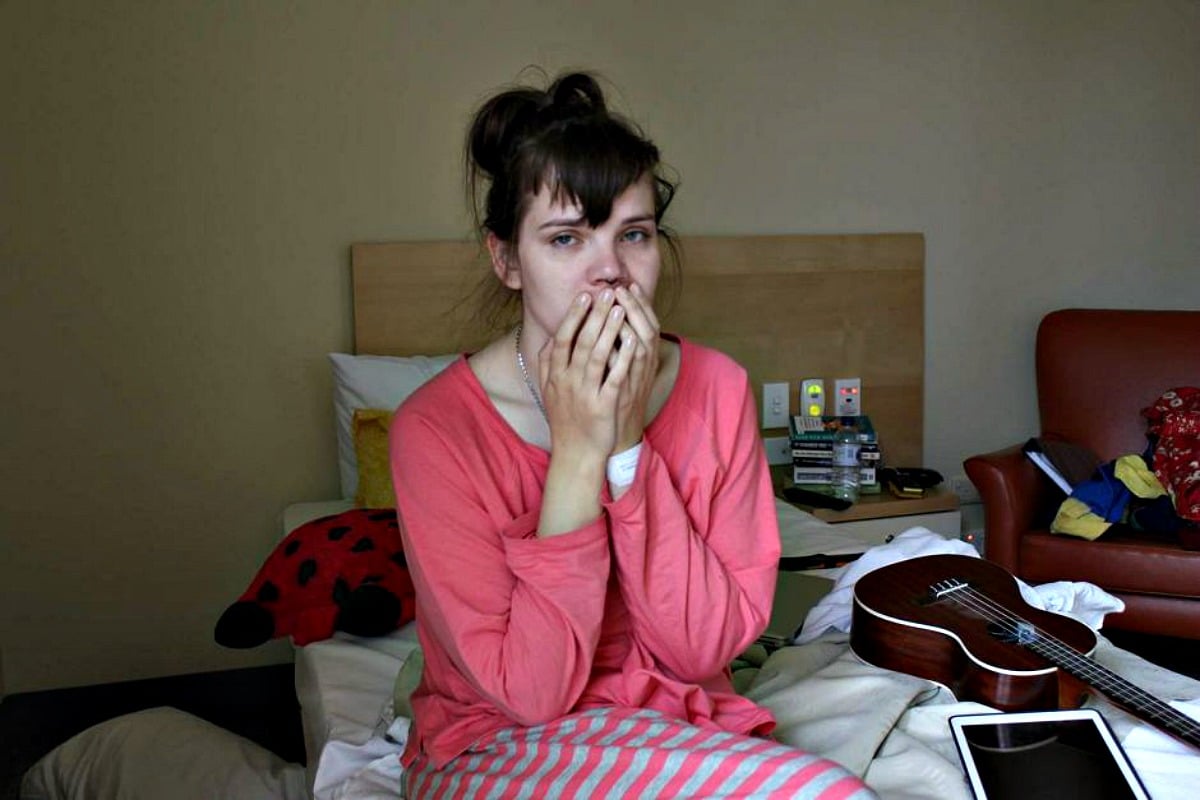
For 24-hour crisis support, call Lifeline on 13 11 14 or BeyondBlue on 1300 22 4636.
When Honor Eastly checked herself in to a psychiatric facility at the age of 25, she realised within 10 minutes that it wasn’t what she’d imagined. She’d assumed it would be a place for healing, for getting well.
Instead, buried among the procedural questions about allergies and her date of birth, the nurse handling her intake interview asked her if she was likely to “give it up easily”, as in, have sex with other patients. She also told Honor her self-harm “wasn’t that bad”, that normally people like her come in “all cut up and down”. But there was one comment in particular that really got to her.
“The nurse said, ‘Let me give you some advice: Don’t tell anyone in here your diagnosis,'” Honor told Mamamia‘s No Filter podcast. “I was like, ‘What? Do you mean other patients and stuff?’ She was like, ‘No, the staff. Don’t tell the staff; they’ll treat you worse because of your diagnosis.’
“Some of the diagnoses I had received were associated with being just difficult, basically. So [the nurse] was kind of saying, ‘You’re not actually that bad. So don’t tell people this diagnosis, because they’ll treat you like you are going to be annoying or frustrating or attention seeking.'”
It confused Honor at first. She’d been seeking help for her mental health for more than a decade, and felt fully the power that diagnoses could bring. The way they made her feel believed, validated, and afforded her access to otherwise out-of-reach services.




























































































